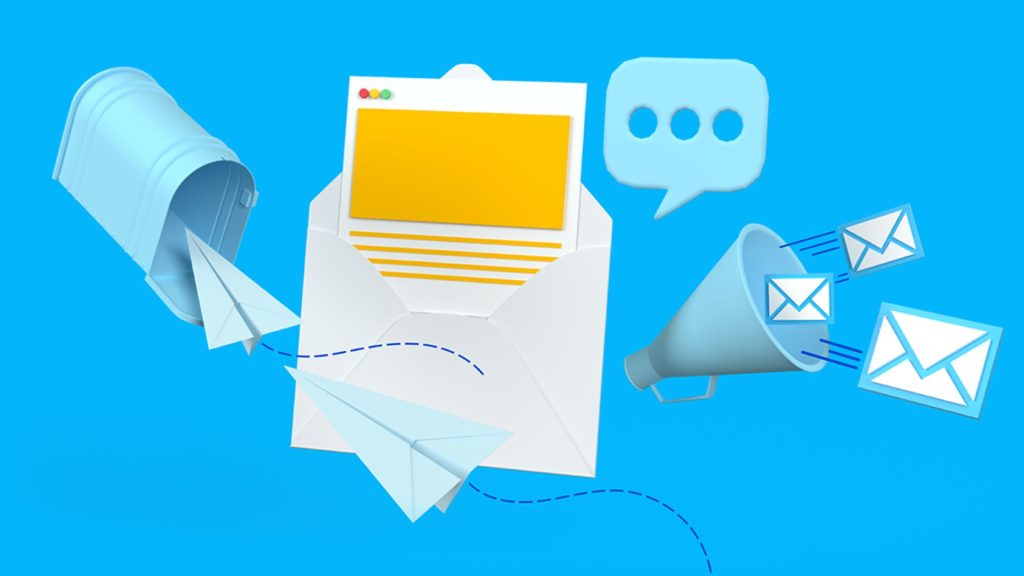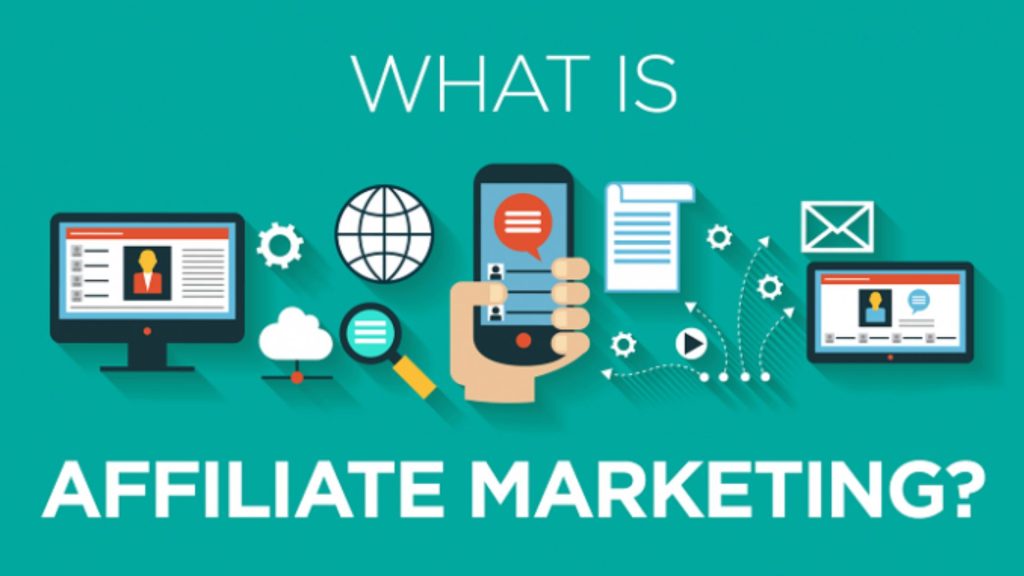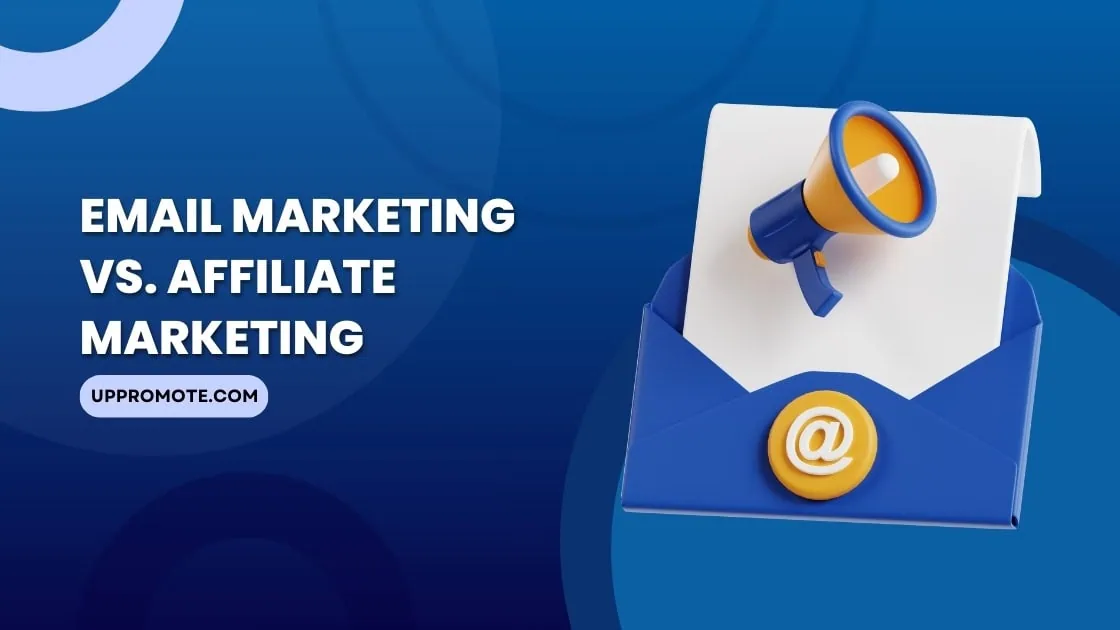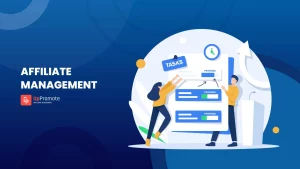Email marketing and affiliate marketing are two popular ways for businesses to connect with their target audience, boost brand awareness, and increase sales. Although both methods work well, they have different goals and ways of working.
In this article, we’ll look at how email marketing and affiliate marketing are different, their pros and cons, and how to choose the right one for your business.
What Is Email Marketing and How Does It Work?

Email marketing involves using emails to promote a business’s offerings and foster customer loyalty. It’s a way to keep your email subscribers informed about new products, discounts, and services while educating them about your brand’s value.
Whether it’s a gentle reminder between purchases or a more direct promotion, email marketing aims to keep your audience engaged.
The power of email marketing is that it combine direct and digital marketing. It uses emails to promote your business’s products or services. It helps keep your customers up-to-date with your latest offerings and special deals, seamlessly integrated into your marketing automation efforts.
Additionally, the role of email marketing is a key, aiding in lead generation, boosting brand awareness, fostering stronger relationships, and keeping customers engaged between purchases through different marketing emails.
Email marketing is known for giving a great return on investment (ROI), like making $44 for every $1 spent. You can send messages based on each person’s actions, making them more likely to engage and buy from you.
Some popular types of email marketing are:
- Lead nurturing emails
- Confirmation emails
- Welcome emails
- Newsletter emails
- Dedicated emails
- Invite emails
- Promotional emails
- Survey email
- Seasonal marketing emails
Email marketing works by sending messages to people who signed up for your brand’s emails. It helps make more people aware of your brand and keeps current customers loyal by sending them messages throughout their buying journey.
The key to email marketing is sending the right message to the right person at the right time. This means sending messages that match each person’s interests or needs.
What Is Affiliate Marketing And How Does It Work?

Affiliate marketing is a method where your content creators, affiliates, or ambassadors promote your companies’ products through affiliate links. They get paid for specific results like sales, leads, clicks, or app downloads.
The process of affiliate marketing works like this:
You, as the brand or merchant, team up with others (affiliates) who have followers interested in your products. They promote your stuff on their blogs, social media marketing, or websites using special links.
When someone clicks on an affiliate’s link and makes a purchase, the affiliate earns a commission. It’s a win-win situation: you get sales without upfront advertising costs, and the affiliate earns money for driving sales to you.
Affiliate marketing helps you sell more without traditional ads. It’s also a great way to team up with influencers and content creators who can honestly recommend your brand to their followers.
The affiliate marketing industry is valued at $15.7 billion globally by 2024, making it a popular choice for businesses. For creators, it’s a low-cost or even free way to make a significant profit.
- The top reasons why many brands use affiliate marketing are:
Cost-effective - Control spending
- Expand reach
- Streamline tasks
- Accelerate growth
Get More for Less: Affiliate marketing lets you spend less on advertising while still getting great results. You only pay when you actually make a sale, so there’s no wasted money.
Control Your Spending: With affiliate marketing, you decide exactly how much you want to spend to get each new sale. This helps you avoid overspending and gives you more control over your budget.
Reach More People: When you use affiliate links, you can reach new customers all over the internet. It’s like spreading the word about your products far and wide.
Save Time with Automation: Affiliate marketing tools can automate a lot of the boring stuff, like tracking sales and paying commissions. That means less work for you and more time to focus on growing your business.
UpPromote, the top-recommended Shopify affiliate marketing app, offers robust automation for your affiliate program. Get started for free today!
Boost Sales Faster: Instead of waiting for customers to find you, affiliate marketing helps you create a cycle where happy customers become advocates for your brand. This can really speed up your sales and help your business grow quickly.
Similarities Of Email Marketing And Affiliate Marketing
Email and affiliate marketing are both essential components of a digital marketing strategy.
They both need skills and persuasion to sell products or services. Both use various promotional methods to drive sales. Just sharing a link won’t make people buy without trust. Similarly, forwarding an email won’t guarantee sales without engaging content.
Let’s look at this table to see its similarities in details:
| Similarities | Email Marketing | Affiliate Marketing |
| Audience Engagement | Direct communication with list of subscribers through emails | Engagement with audience through various channels |
| Relationship Building | Focus on nurturing relationships with subscribers | Emphasis on building trust and credibility with audience |
| Promotional Content Creation | Creation of compelling content to drive a higher conversion rate | Crafting valuable content to resonate with audience |
| Performance Tracking | Reliance on data-driven decisions insights to optimize email marketing campaigns | Monitoring metrics to assess performance and make adjustments |
| Mutually Beneficial Partnerships | Collaboration between brands, marketers, and customers | Partnership between brands and affiliates for mutual benefit |
Email and affiliate marketing are key aspects of digital marketing, and they need persuasion and the skills to sell products or services. They both use different methods to boost sales, stressing the need for trust and engaging content.
Email marketing talks directly to subscribers, while affiliate marketing engages with audiences through different channels. Both track performance and rely on partnerships to succeed.
Differences Between Email Marketing And Affiliate Marketing
Email marketing and affiliate marketing have different goals and methods. Email marketing aims to keep current customers happy, while affiliate marketing targets a wider audience through partnerships to boost sales with referrals.
| Basis of Difference | Email Marketing | Affiliate Marketing |
| Definition | Sending targeted emails to subscriber lists, boosting brand awareness, and fostering customer loyalty. | Performance-based marketing where partners promote a company’s products or services, earning a commission on each sale or referral. |
| Target audience | Company’s own subscribers who have opted to receive marketing emails. | Wider audience, including potential customers unfamiliar with the company’s offerings. |
| Purpose | Strengthen relationships with existing customers, increase customer retention, and encourage repeat purchases. | Drive sales and generate revenue through referrals. |
| Promotional method | Create and send targeted emails to subscribers, promoting promotions, discounts, and other incentives to drive sales. | Partner with affiliates who promote products or services through their channels, such as websites and social media. |
| Payment structure | Companies do not pay subscribers to receive marketing emails. | Affiliates earn a commission for each sale or referral they generate. |
Email Marketing And Affiliate Marketing: Which One Is Better in 2024?
Deciding between e-mail marketing and affiliate marketing depends on what you want to achieve and who you’re trying to reach. Email marketing is great for keeping customers engaged, encouraging them to buy again, and making them loyal to your brand. It’s all about sending personalized content emails that get people to take action.
On the other hand, affiliate marketing offers the opportunity to tap into new audiences through partnerships with influencers and content creators. By leveraging their existing followers and networks, affiliate marketing can generate significant sales and expand your brand’s reach.
Ultimately, the effectiveness of email and affiliate marketing strategies depend on factors such as your industry, product offerings, and marketing objectives. Some businesses may find success with a combination of both email and affiliate marketing, while others may prioritize one over the other based on their specific needs and resources.
But what if you still need to choose one?
If you want to keep existing customers engaged and encourage repeat purchases, go for email marketing. But if you aim to reach new audiences and boost sales quickly, affiliate marketing is the way to go.
FAQs
- Can I do affiliate marketing through email?
Yes, you can do affiliate marketing through email. Simply join affiliate programs, obtain unique affiliate links, and include them in your emails. You should ensure compliance with email marketing regulations and focus on providing value to your subscribers while promoting relevant products or services.
- Is email marketing the same as affiliate marketing?
No, e-mail marketing and affiliate marketing are not the same. Email experiential marketing is about sending targeted emails to subscribers to promote stuff. Affiliate marketing is when partners help sell your stuff in exchange for a cut of the sales.
- Can we do affiliate marketing from email marketing?
Yes, you can mix affiliate marketing with your email strategy. Just add affiliate links to your emails promoting relevant products. This lets you use your email list to boost sales and earn commissions. But follow email rules and make sure your emails provide value to your subscribers.
- Email marketing vs affiliate marketing pros and cons
Email Marketing Pros:
- Direct communication with subscribers
- Builds brand loyalty and customer relationships
- Cost-effective compared to traditional advertising
- Highly customizable and personalized
- Can drive immediate sales with targeted campaigns
Email Marketing Cons:
- Risk of being marked as spam if not done properly
- Requires building and maintaining an email list
- Limited reach compared to other marketing channels
- Effectiveness depends on open and click-through rates
- Requires ongoing content creation and segmentation efforts
Affiliate Marketing Pros:
- Access to a wider audience with affiliate marketing campaigns
- Performance-based payment structure (pay for results)
- Potential for passive income with successful partnerships
- Scalable, with the ability to reach new markets and audiences
- Cost-effective, as commissions are only paid upon sales or referrals
Affiliate Marketing Cons:
- Dependence on affiliates’ promotional efforts
- Risk of fraudulent or unethical practices by affiliates
- Requires ongoing management and monitoring of affiliate relationships
- May encounter competition among affiliates promoting the same products
- Commission payouts reduce profit margins on sales
Last words
In summary, email and affiliate marketing are essential for businesses to engage with customers and boost sales. Email marketing focuses on existing customers, while affiliate marketing helps reach new audiences. The best choice depends on your goals and resources. Understanding the strengths of each will help you make the right decision for your business.










